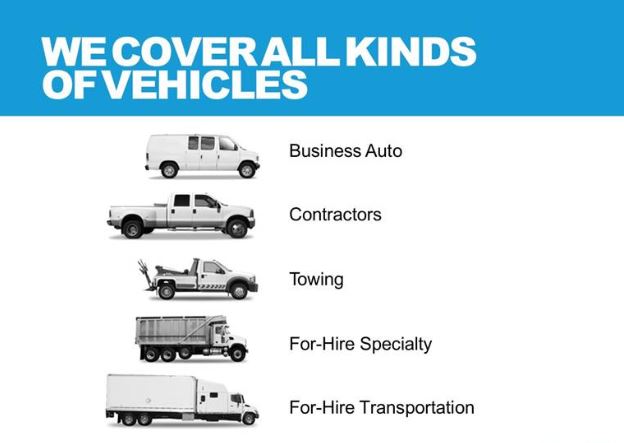Sarasota Insurance Agency >> blog

Commercial auto insurance is insurance designed for vehicles used for business purposes.
Depending on your employer and/or your own business, you might need higher liability insurance, as well as additional coverage add-ons to make sure you, your employees, other individuals, your vehicle, and your business are fully protected.
When it comes to drivers, vehicles, and purposes, personal drivers don’t have the same kinds of car insurance concerns as do businesses.
Businesses have much higher liability issues; as such, usually, they have higher liability insurance requirements or recommendations. Generally, businesses deal with:
Commercial car insurance is typically required to sufficiently cover the above.
You need commercial auto insurance if you use your vehicle for work or own vehicles operated by a business.
Commercial car insurance coverage isn’t just about big rigs.
Commercial vehicles actually can include what you might consider “regular vehicles,” such as:
It also branches out to some of the vehicles you might more closely associate with commercial work, such as individual or fleets of:
Simply put, if you use a vehicle or vehicles for your profession or business (other than commuting to work), it’s likely you need commercial auto insurance.
NOTE: If you use your vehicle for work-related purposes and you aren’t sure if you need commercial auto insurance, ask your insurance agent.
Basically, commercial car insurance covers the same major coverages private individuals purchase (usually at higher limits); however, there are many add-ons more suited for commercial driving, such as coverage for your:
Your auto insurance specialist can inform you of your exact coverage needs based on your business and vehicle use.
(which include bodily and property damage coverage). Understand that these coverage limits might be higher than they are for regular passenger vehicles.
If you don’t own your commercial vehicle(s) outright, your financial institution also might require comprehensive and collision coverage
(which will pay for damages to your vehicle when you are at fault in an accident or the victim of non-collision events such as weather or fire).*
Aside from those coverages, you might consider additional types of auto insurance
including, but not limited to:
These are just a few suggestions. Your auto insurance provider will explain the appropriate coverages and whether they’re required or available in your state.
Basically, you’ll purchase commercial car insurance coverage the same way you’d purchase regular vehicle insurance:
Original Source: https://www.dmv.org/insurance/who-needs-commercial-auto-insurance.php?fbclid=IwAR2c3tvWoTX2It66RWlVV7QPmWlZnN3HVEelo3ROM00Q_XYPV5d_dpFBQ7g
2018-12-13 12:20:13